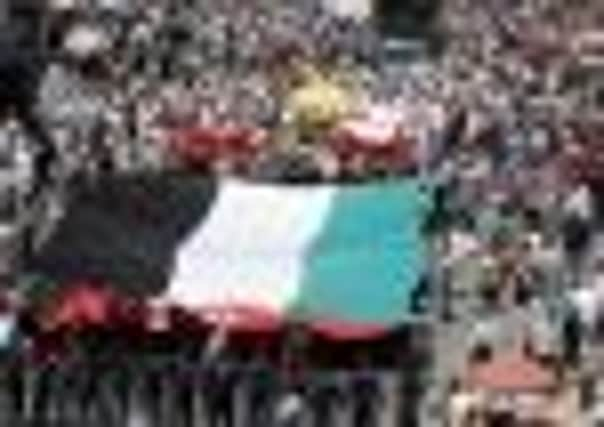Muslim bloc plans boycott of elections to Jordanian parliament


The decision is likely to prove a significant blow to King Abdullah II, who has made his reform campaign the centrepiece of efforts to stave off protests similar to those that have toppled other rulers in the region’s so-called Arab Spring.
Islamists are showing increasing strength in Jordan, where regular street protests over the past 18 months have called for wider public participation in politics and restrictions on the king’s absolute powers.
Advertisement
Hide AdAdvertisement
Hide AdAnalyst Labib Kamhawi said the Brotherhood’s announcement marks the start of political interaction with the government, but warned of looming trouble if the demands are not met.
“The government must either change the elections law again to absorb the opposition, or it risks trouble and a total disengagement between the regime and the people,” he said.
The elections, expected at the end of the year, are critical to the king’s campaign. He has changed 42 articles, or one-third of Jordan’s 60-year-old constitution, giving parliament a say in appointing cabinets – a task once his sole prerogative.
“The government left us no choice but to boycott the elections because it did not show any seriousness toward real reforms,” Brotherhood spokesman Jamil Abu-Bakr said.
However, he said the Brotherhood – Jordan’s largest opposition group – may reverse the latest decision if the government promptly acts on its demands.
“We will leave that discussion until a time when the government undertakes serious and real efforts toward reforms,” he said.
The main dispute is over a new election law, which gave concessions to the opposition by allowing each eligible voter two ballots instead of one under legislation enacted in 2001.
Parliament passed the law on Thursday. Under it, one ballot is reserved for representatives from local districts in the traditionally tribal society, while the other goes to a 27-seat national list of candidates.
Advertisement
Hide AdAdvertisement
Hide AdThat way, Islamists are expected to dominate the national list and also get some votes from the local list, while tribal pro-government candidates will likely muster most of the local support from their particular clan and relatives.
However, the Brotherhood argues the law still favours the king’s loyalists and that elections held under it would produce another docile legislature.
It insists on a 1989 election law which allowed Jordanians multiple ballots and saw the Brotherhood at the time win almost half of the seats in the first elections in more than two decades.
Information minister Sameeh Maaytah said the Brotherhood is entitled to reject the new election law. “But we would like to see all groups contest the elections,” he said, adding that the Brotherhood should work within the system to achieve its desired change, including “future amendments to legislation”.